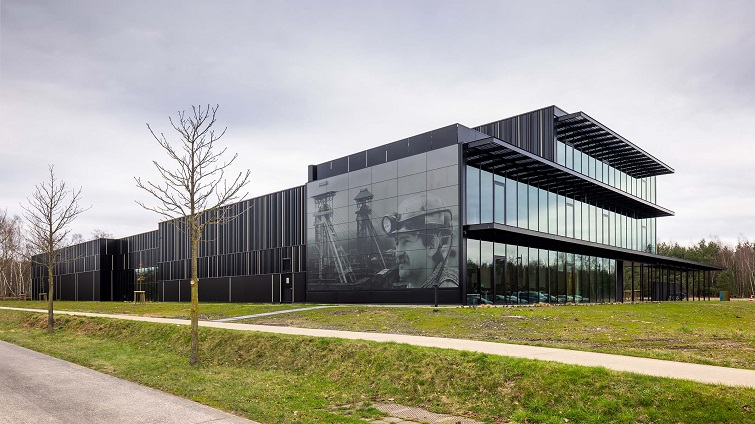2024 Country Update
National PV Policy Programme
As Belgium is a federal state the responsibilities for energy policy are divided among the three regions (Flanders, Wallonia, Brussels) and the federal government which is responsible for the renewable energy developments at the Belgian part of the North Sea.
As of the end of 2024, there was no final national NECP submitted yet. The regional ambitions are respectively 8.2/5.1/0.3 TWh of solar photovoltaic electricity generation by 2030 in Flanders (Vlaams Energieen Klimaatplan 2021-2030), in Wallonia (Plan regional air-climat-énergie) and in Brussels (Plan régional air-climat-énergie). Put together, this means a national generation target close to 14 TWh/year by 2030 which is not enough for Belgium to fulfil the EU requirements for climate effort sharing and falls short from the estimated 20-25 GW needed according to EnergyVille study. In 2024, two main support schemes for residential PV development were no longer applicable. At the end of 2023, the net-metering scheme (for new PV systems) was phased out in Wallonia and the investment support was phased out in Flanders.
In addition, in 2024, the VAT reduction (from 21% to 6%) for houses less than 10 years old was no longer in force throughout the whole country. In these two regions, residential PV is now driven by self-consumption and sales of surplus electricity to a utility. In Brussels, net-billing is in place for residential PV (<5kW) and green certificates are available for various sizes and typologies (BIPV-specific green certificate grant rate exists) of PV systems. As part of the revised regional urban planning regulation, Brussels region new buildings with a flat roof area greater than 20 m² have to dedicate part of this area to renewable energy production (including PV), to urban agriculture, to recreation function or to nature development. In Flanders, companies with an electricity consumption of more than 1 GWh are required to fulfill an obligation related to the installation of renewable energy by June 2025. The obligation can be met through three different means: 1. commissioning photovoltaic systems; 2. commissioning other renewables (wind turbines, CHP, HP); 3. participating financially in renewable projects commissioning (PV, wind turbines, CHP).
Research, Development and Demonstration
In Belgium, research and development efforts in photovoltaics (PV) cover the entire value chain, from the development of new cell architectures to advances in power electronics, Agri-PV, floating solar, offshore PV-wind hybridization, building-integrated PV (BIPV), and large-scale solar installations.
These activities are carried out across multiple universities and research centres, fostering innovation and accelerating the integration of PV into diverse applications. A key focus remains on tandem solar cell technology. Within the PERCISTAND project, thin-film tandem solar cells have achieved efficiencies of up to 30%, providing a sustainable alternative to conventional silicon PV (EnergyVille).
Belgium is also making strides in offshore floating PV (OFPV). The SWiM project is assessing the feasibility of integrating PV into offshore wind farms within Belgium’s Exclusive Economic Zone, with the aim of maximizing the complementarity of solar and wind energy production at sea (buildings (EnergyVille). Belgian research continues to prioritize sustainability and circularity. Increasing emphasis is being placed on life cycle assessments (LCA), recycling of end-of-life PV panels, and the development of low-carbon footprint solar cells and modules. Particular attention is being given to reducing dependency on scarce materials such as indium, bismuth, and silver, ensuring a more sustainable supply chain (EnergyVille). Through its broad and ambitious research agenda, Belgium continues to push the boundaries of PV technology, reinforcing its position as a key player in the transition to a sustainable energy system.
Industry and Market Development
In 2024, the total electricity consumption in Belgium was 80.5 TWh. Solar PV represented 11.9% of the electricity generation mix in 2024, a 25% increase compared to 2023 attributable to the important and exceptional annual solar PV capacity additions throughout 2023.
In 2024, the annual installed solar PV capacity was around 947 MW with respective contributions of Flanders, Wallonia and Brussels of 729 MW (estimation based on AC capacity), 200 MW and 18 MW. This brings the cumulative installed capacity close to 11 GW and Watt per capita penetration to 924.Despite the phase-out of support schemes in the residential market segment, small PV installations(<10 kW) remained an important market development driver (44% of annual installed capacity in Flanders).
There are just a few, niche-market, solar module producers in Belgium. BelgaSolar (called EvoCells until recently) added a new 50 MWp production line in 2024. Another example is Soltech, which targets the special use market of solar PV integrated in façades, glass, street furniture and stepping stones for instance. Their factory at a former coal mine site in Genk was officially opened in 2023 and shows a(solar PV) picture of a coal mine worker on their own façade. In Wallonia, there is a module manufacturing project with foreseen start of operation of a 500 MW line in 2025.

Participants from Belgium
EnergyVille – UHasselt
VERMANG Bart
Energyville
SCHAEFFER Gerrit Jan
Task - 1
Becquerel Institute
BOSCH Elina
MASSON Gaëtan
Energyville
SCHAEFFER Gerrit Jan
Task - 12
PV Cycle Association
CLYNCKE Jan
Task - 13
3E nv/sa
CHOWDHURY Gofran
DECKX Julien
EnergyVille – UHasselt
KYRANAKI Nikoleta
MANGANIELLO Patrizio
Energyville - IMEC
KAAYA Ismail
VAN DER HEIDE Arvid
Lucisun
LELOUX Jonathan
Task - 15
Becquerel Institute
BOSCH Elina
MACÉ Philippe
VAN OVERSTRAETEN Julien
EnergyVille – UHasselt
KYRANAKI Nikoleta
Lucisun
LELOUX Jonathan
Task - 17
Energyville - IMEC
